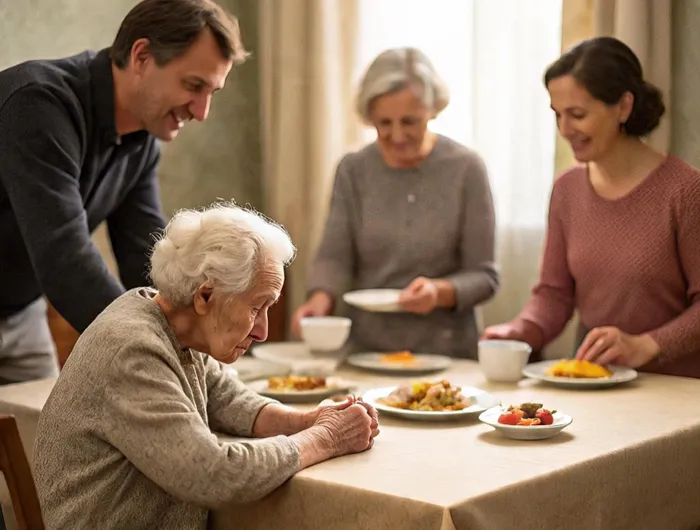
Older parents could often feel unseen or unappreciated by their adult children.
Image: created with Meta AI
These days, I have become so jaded, it takes quite a bit to impress me. However, I was impressed when I recently read about Bob Schwartz’s planking record.
While most people in their 80s are taking it easy and celebrating the fact that they can still pull on a sock, Schwartz set a staggering benchmark.
The Florida-based grandfather held a plank for an incredible 50 minutes!
These days, fitness experts recommend older adults hold a plank for between 20 seconds and two minutes. Schwartz blew that guideline into the stratosphere.
The beauty of planking, of course, is that it requires no equipment.
I remember my last day at the gym, just before cancelling my subscription. I spotted an attractive young lady working out nearby and wanted to impress her. So I asked one of the instructors what machine I could use that might do the trick.
The musclebound, young, arrogant little so-and-so didn’t blink: “Try the ATM,” he said.
Yep – one gets the impression these days that the youth underestimate, disregard, and sadly disrespect older folk. That’s tragic.
But it’s even more heartbreaking when the ones who treat the elderly as burdens are their own children.
A message I came across recently offers some hard but valuable advice to older parents who feel unseen or unappreciated by their adult children. I tried to summarise it.
It begins with a sobering truth, something along the lines of, don’t visit your children in old age unless you’re prepared to see the truth in their eyes – that you may no longer be essential. That your presence, once sacred, might now be regarded as an inconvenience.
It’s not always because children are ungrateful or unloving. Life moves fast. Modern society prizes speed and efficiency. In that rush, the slow steps of ageing parents can feel like a burden.
This is a heartbreak many elderly endure: to have sacrificed everything, only to receive polite smiles, distracted phone glances, and silence instead of warmth.
The message reminds older parents that they built their lives around their children’s needs – sleepless nights, silent suffering, selfless love. And when the children finally stood on their own, many never looked back at those sacrifices.
Too many elderly parents return home from visits with an ache in the chest. Not from illness, but from disappointment.
So what should they do?
The message offers this advice: Set boundaries. Carry yourself with dignity. Don’t chase validation. Don’t beg for relevance. Your time and wisdom are sacred. Be respected not because you demand it, but because your presence commands it.
Here’s the tough part: “Don’t crumble under the weight of unmet expectations. Instead, build a life beyond them. Find community, meaning, ritual. Stop being the parent who pleads for space at the table. Be the elder whose silence commands respect.”
This is not about cutting ties. It’s about creating strength – so that if your children come around one day, you greet them, not as a broken, dependent person, but as someone whole, wise, and grounded.
Welcome them, yes – but not because you need to be needed. Not because you are desperate for company, but because you value yourself and choose to share your company.
You are not weak, nor outdated. You are the root from which the family tree grew. If your children have forgotten that, let time remind them. But you? Don’t wait in the shadows. Laugh loudly. Live fully. Love yourself enough to never settle for crumbs again.
In the end, older people – whether parents, neighbours, or strangers – deserve more than to be tolerated.
They deserve to be seen, to be honoured, and to be acknowledged.
Let that be the legacy: not desperation, but dignity.
Related Topics: